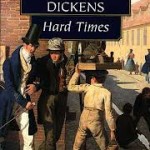Next tour: Mon 14 Oct 2024, during the Manchester Literature Festival.
Meet: Outside the Mercure Hotel, Portland Street, 1pm.
Booking: Please press here to book with Eventbrite.
Private bookings: To book privately, please phone Ed Glinert on 07769 29 8068.
What a review on TripAdvisor!
I booked myself and some Irish/Canadian visitors on a special Charles Dickens’s Manchester tour to coincide with the Manchester Literary Festival. It was a superb way to get new insights into some familiar parts of the city and to discover fascinating facts about places that I have often walked past without appreciating their historic and cultural significance. Ed Glinert, our tour guide and author of “The Manchester Compendium” (also highly recommended, available on amazon), was excellent. His selection of essential and quirky details, delivered with dry wit in an east London accent, were spot on. I was a student in Manchester in the 1980s and have family there so I now visit the city every month. The tour made me realise how much there is still to discover about the place and it was great to see how much my visitors, on their first trip to the city, enjoyed finding out about the place. I will definitely do more of New Manchester Walks tours and would highly recommend them.
***
It was the best of times; it was the worst of times.
Manchester in the early Victorian period was the commercial heart of the North-West, the industrial heart of the world’s greatest empire, a city of culture, power and glory, a city alive with the greatest figures of the age: Wellington and Peel, Disraeli and Gladstone, Tennyson and of course Charles Dickens.

Britain’s most celebrated novelist came to the growing industrial metropolis of Manchester 19 times, taking the platform at a fund-raiser in October 1843 for the Athenaeum alongside such reformers and notables as Benjamin Disraeli and Richard Cobden; partying with his pal and fellow novelist Harrison Ainsworth; and visiting his sister in then desirable Ardwick.
He based the character of the crippled Tiny Tim in A Christmas Carol on the son of a friend who owned an Ardwick cotton mill. Local industrialists the Grant Brothers, William and Daniel, were the prototypes for the Cheeryble brothers in Nicholas Nickleby.
Yet Dickens produced only one work on the Industrial Revolution – Hard Times (1854). The novel is set in a mythical Coketown, possibly Manchester but also based on Preston. Though not one of his better works, it is worth reading for its descriptions of working-class life.
He also spoke at and acted in the Free Trade Hall and was the guest of honour at the opening of the Free Library in 1852.
We will visit the haunts of those he met and knew, stop by at the locations he might just recognise today, and drop into the elegant Portico Library where the catalogue in the 1840s was organised by his friend James Crossley.
Until then, sample this specimen from Hard Times:
The streets were hot and dusty on the su mmer day, and the sun was so bright that it even shone through the heavy vapour drooping over Coketown, and could not be looked at steadily. Stokers emerged from low underground doorways into factory yards, and sat on steps, and posts, and palings, wiping their swarthy visages, and contemplating coals.
mmer day, and the sun was so bright that it even shone through the heavy vapour drooping over Coketown, and could not be looked at steadily. Stokers emerged from low underground doorways into factory yards, and sat on steps, and posts, and palings, wiping their swarthy visages, and contemplating coals.
The whole town seemed to be frying in oil. There was a stifling smell of hot oil everywhere. The steam-engines shone with it, the dresses of the Hands were soiled with it, the mills throughout their many stories oozed and trickled it. The atmosphere of those Fairy palaces was like the breath of the simoom: and their inhabitants, wasting with heat, toiled languidly in the desert. But no temperature made the melancholy mad elephants more mad or more sane. Their wearisome heads went up and down at the same rate, in hot weather and cold, wet weather and dry, fair weather and foul. The measured motion of their shadows on the walls, was the substitute Coketown had to show for the shadows of rustling woods; while, for the summer hum of insects, it could offer, all the year round, from the dawn of Monday to the night of Saturday, the whirr of shafts and wheels.
